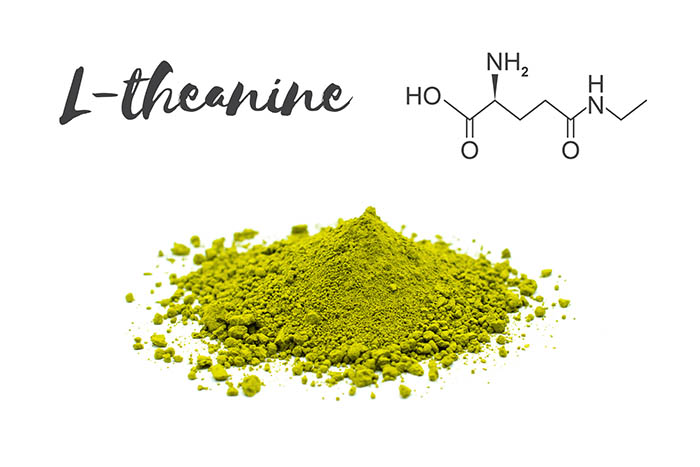Emotional Healing Through Self Compassion

Emotional challenges are a normal part of life and a major part of the human experience. Just as physical healing is important for maintaining health and well being, emotional healing is important for the upkeep of good mental health, the maintenance of healthy and meaningful relationships, and for living a fulfilling life.
Since people’s internal and mental states are so frequently in contrast with how they present themselves outwardly, it may seem like everyone else has it all together. This can cause negative emotions to make you feel that much more alone.
Let it be said once and for all: everybody goes through difficult times in life, and you are not alone.
Reminding ourselves of how common emotional turmoil and mental distress is, allows us to show ourselves more kindness and understanding. The more that we can learn to love and forgive ourselves, the more we’ll be able to meet challenges with grace and bravery.
What Is Self Compassion?

It is often easier to show kindness to others than it is to ourselves. In many cases, we are our own worst critics and judge ourselves more harshly than anyone else. Self compassion is about turning the understanding, love, and acceptance that we have for others inward.
To have compassion, you must first notice the presence of suffering, and then truly empathize, feeling the pain alongside the one who suffers. This is accompanied by feelings of caring, tenderness, understanding, and kindness. True compassion is present even in the face of failure or mistakes and is independent of judgment.
It would be ridiculous to expect others to be perfect all the time, so why should we expect ourselves to be? Imperfection is a part of what makes us human, and just as we treat others with understanding when their imperfections show, we should give ourselves the same courtesy.
A clarifying way of looking at self compassion is through the lens of these three elements outlined by Dr. Kristin Neff:
- Self-kindness vs self-judgement: Instead of criticizing ourselves for our mistakes or inadequacies or ignoring our negative emotions altogether, self compassion entails showing ourselves kindness and experiencing the negative emotions head on, but with gentleness and care. Self-kindness is all about accepting that it’s okay to feel a certain way and recognizing that life itself is imperfect, and that’s not our fault.
- Common humanity vs isolation: To utilize self compassion correctly, we must first recognize that all humans experience suffering – we aren’t being singled out by the universe. Mortality and vulnerability are facts of life, and as we accept that, suffering becomes a more understandable problem.
- Mindfulness vs over-identification: Denying or suppressing negative emotions contradicts the point of self compassion. How can you feel self compassion if you’re avoiding the things that cause suffering? Being mindful of and open to your feelings and thoughts allows for a non-judgemental space where you can recognize and accept emotions for what they are. Being too reactive is also a road block. If we blow the scope of an issue out of proportion and over-identify what we’re feeling, the negative reactivity will inhibit our self compassion. This is why practicing mindfulness and staying in a receptive, objective state of mind is best for the process of emotional healing.
The Difference Between Self Compassion and Self-Esteem
Self-esteem is associated with our self-worth, our self-image, and how highly we value ourselves. While having high self-esteem and seeing ourselves in a positive light isn’t necessarily a bad thing, too much dependence on self-esteem can be detrimental to how we treat ourselves.
When we evaluate ourselves as “good” or better than others, we’re putting our happiness and sense of worth in that judgment. If we come across a situation that makes us feel less than, self-esteem falls and we criticize ourselves mercilessly. Self-esteem can also distort our self-image by either making us consider ourselves as superior to others or by critiquing and judging every misstep, leading to constant negative thoughts and very low self-worth.
Unlike self-esteem, self compassion simply involves openly accepting and understanding ourselves with no judgment. With self compassion, there is no evaluation that needs to be made in order to determine if you are worthy. All human beings deserve compassion, and external circumstances such as successes and failures, looks, or other imperfections can never take away someone’s deservingness.
You don’t have to be the “most accomplished”, the “most intelligent”, or the “most athletic” to feel happiness and peace, and there is no need to see ourselves as better or worse than others.
How Self Compassion Can Facilitate Emotional Healing

Unlocking Your Natural Compassion
To use self compassion to your benefit, you must first tap into the well of compassion inside you and learn what it feels like to experience the emotion of compassion. You have to be able to recognize and produce these feelings of warmth and caring in order to turn them towards yourself for the purpose of emotional healing.
When you’re first trying to access your compassion, you don’t have to think about yourself. Choose a loved one, be that a friend, family member, or even a pet, and imagine sending them love, goodwill, and kindness. Focus on the feelings that this produces and the effect that they have on you. After practicing this, you should have a good idea of what true compassion feels like and how to access it.
Using Compassion To Transform Suffering in the Present
To relieve suffering in the present moment using self compassion, it is first important to embrace your emotional pain with acceptance and love. You have to give yourself permission to feel the way you’re feeling. Openly recognizing your feelings and allowing them to happen without judgment helps you take control and ownership over your emotions
Next, use compassion to tend to your needs in the moment and treat yourself with tenderness and understanding. After recognizing your emotions, ask yourself what you need to feel better, just like you would with a friend who is in emotional distress.
Using Compassion To Transform Past Suffering
By picturing your past self and getting in touch with the source of your suffering, you can send compassion to that version of yourself. Just as you can direct compassion to loved ones and to your present self, a painful memory or emotional trauma that causes suffering can be the aim of your compassion.
By being there for yourself in a past moment of emotional pain and accessing your compassion at the same time, it can help heal old wounds and reduce memories of suffering. This is actually a process known in the field of neuroscience as memory reconsolidation, which builds new associations by activating both the negative memory and the care circuit in the brain simultaneously. By reshaping the memory of suffering with the help of self compassion, you can start on the path to emotional healing.
Understanding and Overcoming Self-Criticism
With self compassion comes the understanding that everyone has imperfections and goes through failures. With this recognition, self-criticism is revealed for what it is – a negative reaction to emotions like anger, fear, or suffering.
In cases where you find yourself being critical, react to your own self-criticism with compassion and understanding. If your self-critical voice is yelling that you’re stupid and clumsy after breaking a cup, take a short moment to say to yourself “I recognize that I’m upset about the cup I just broke. It’s okay to be upset, but I’m not stupid. Everyone makes mistakes and it’s just a part of life.”
Speaking to yourself in a more accepting and kind way will help keep excessive self-criticism in check, and will help you to have compassion for the parts of yourself that you might normally label as bad or dysfunctional when in reality, they’re just human.
Realizing that it’s ok to be imperfect is key to forgiveness and self-acceptance. Trying to be perfect can produce tremendous anxiety, but self-compassion and acceptance can help to transform this into a positive emotion.
Self Compassion Meditation
It may seem so easy to feel compassion and understanding for those around us, but feeling it for ourselves can be difficult. It’s important to adopt the belief that being compassionate towards ourselves is not selfish. Just like any human being, we deserve compassion.
Once this fact has been accepted, we can begin meditating on our self compassion. Metta meditation (or “loving-kindness meditation”) specifically has been shown to help significantly with the reduction of self-criticism and the increase of self-compassion. Depressive symptoms were also reduced, showing the effectiveness of metta meditation as an emotional healing method.

How To Cultivate the Feeling of Compassion
In order to promote the cultivation of compassion, use metta meditation to help focus on positive feelings and to get into the right state of mind.
To practice metta meditation, you internally recite kind, uplifting phrases towards others and towards yourself while focusing on feelings like trust, love, appreciation, happiness, and compassion.
If you are trying to cultivate positive energy and kindness for another person, you can picture them in your mind while repeating phrases such as:
- “May you be free from suffering.”
- “May you have joy and happiness.”
- “May you be safe and at peace.”
Focusing on the emotions you feel when you sincerely recite these phrases for the benefit of a loved one can help you concentrate your consciousness on the feeling of compassion. Once you have a good understanding of what compassion feels like, you can use then these phrases towards yourself while meditating on positive emotions and the relief of your suffering:
- “May I be free from suffering.”
- “May I have joy and happiness.”
- “May I be safe and healthy.”
- “May I be at peace.”
So, after practicing the cultivation of compassion and generating positive emotions, how how can you direct this sentiment into the world as part of an emotional healing process?
Extend Your Compassion to a Loved One
A great starting point is to practice extending your compassion to a loved one by following these steps:
- Think of a time when a loved one was suffering, be it from a breakup, a sickness, or a demoralizing failure.
- Next, identify how you feel when thinking of their suffering. Do you feel anguish? Love? Tenderness? Do you have the desire to help them?
- Visualize your compassion as a physical entity such as a warm light and extend it out to them, easing their suffering. Internally repeating positive phrases such as those above (“May you be free from suffering.”) can help you tap into your compassion.
- During this process, note what sensations you are experiencing (Warmth? Tenderness?) and keep them in mind.
Be sure to focus on the emotional effects this process has on you – you’ll want to try to achieve these same effects as you attempt to produce compassion for yourself.
Envelop Yourself in Your Compassion
After going through this compassion extension process with loved ones in mind, it’s time to turn these feelings on yourself:
- Think of a time when you were suffering, or focus on the present if your painful emotions are ongoing.
- Identify how you feel when thinking of your suffering. Do you feel anguish? Love? Tenderness? Do you have the desire to help yourself?
- Visualize your compassion as a physical entity such as a warm light and allow it to emanate from within you, easing your suffering. Internally repeating positive phrases such as those above (“May I have joy and happiness.”) can help you tap into your compassion.
- Finally, note what sensations you felt throughout the entire process. How do these sensations compare to when you were extending your compassion to a loved one?
Practice unlocking your compassion and extending it to others to familiarize yourself with the feeling. The goal is to be able to easily apply these same kinds of emotions to yourself over time.
Remember, compassion and loving kindness are skills that require practice to master. Emotional blockages from past experience or even childhood trauma can make these feelings challenging to access. If you persevere with your emotional healing process and continue to grow the compassion that you feel toward others and yourself, you’re sure to form a better relationship with yourself.
When to Seek Help from a Therapist

While self compassion and self compassion meditation can help you be kinder to yourself and create a better emotional space, meditation is not and was never intended to be a cure-all for every problem in life.
If you are having serious issues with mental health or desire the advice of a professional, you should seek help from a licensed therapist. How do you know when it’s time to seek help from a mental health professional?
Dealing with Major Events
- When you need help going through a major life change: Humans are creatures of habit. Big life changes like moving or getting divorced can cause severe emotional turmoil. Seeing a therapist can provide you with extra guidance and support.
- When you want help processing a traumatic event: Seeing a therapist can help prevent or resolve PTSD and can help you create healthy ways to cope with emotions. If you have had a near death experience, been the victim of assault, or are dealing with the grief of an unexpected or tragic death of a loved one, therapy might be right for you.
When Your Quality of Life Is Suffering
- When things like sleep, hygiene, or eating habits are affected: When mental health issues go unchecked, it could affect your appetite, causing you to gain or lose weight at an unhealthy rate. You may also face chronic sleep issues as a result of mental unrest. Seeing a therapist can help you get to the root of the problem.
- If your relationships with friends and family are suffering: Seeing a therapist can help you learn what kind of attachment style you have and can help you maintain healthier relationships. A therapist can also help you learn how to establish healthy boundaries in relationships, which is incredibly important in terms of self-respect, general comfortability, and learning how to be properly assertive.
When Your Mental Health Is Suffering
- When you’re using unhealthy coping mechanisms: Whether this means overeating, drinking too often, or watching too much TV, an unhealthy coping mechanism is something that helps you avoid your problems rather than solving them. Seeing a therapist can help you come up with strategies to face your emotions head on.
- When you have symptoms of a mental illness: Meditation and self compassion practices are not a substitute for prescription medication or professional care. If you suspect you have symptoms of any mental illness from depression, to anxiety, to a panic disorder or schizophrenia, you should go see a therapist to get an expert’s opinion. Getting the help you deserve as soon as possible will only make things better down the road.
Closing Remarks
Learning to love and forgive ourselves makes every relationship in life better, especially our relationship with ourselves. Having a healthier relationship with yourself means giving yourself more respect, love, and acceptance and less criticism, denial, and avoidance.
There is no need to constantly evaluate and judge ourselves based on external circumstances or normal, human imperfections and mistakes. With self compassion, the understanding and kindness we grant to others can be turned inward to give us a more relaxed, peaceful, accepting, free life.

To practice accessing your compassion, try a self compassion meditation to get familiar with the sensations and the process. As you learn to focus your consciousness on compassion and extend it to others, turn those understanding and loving thoughts inward and show yourself some acceptance. When you actively use self compassion, emotional healing can take place. Show yourself kindness and get relief from suffering in return.
Treat yourself like you would treat your most beloved friend. We deserve the same compassion we extend to the ones we love because we are all humans and we are all fallible – and that’s okay. Treat yourself with gentleness and show yourself some self compassion every day and in every situation. Remember, if someone else is worthy of your compassion, then so are you!



